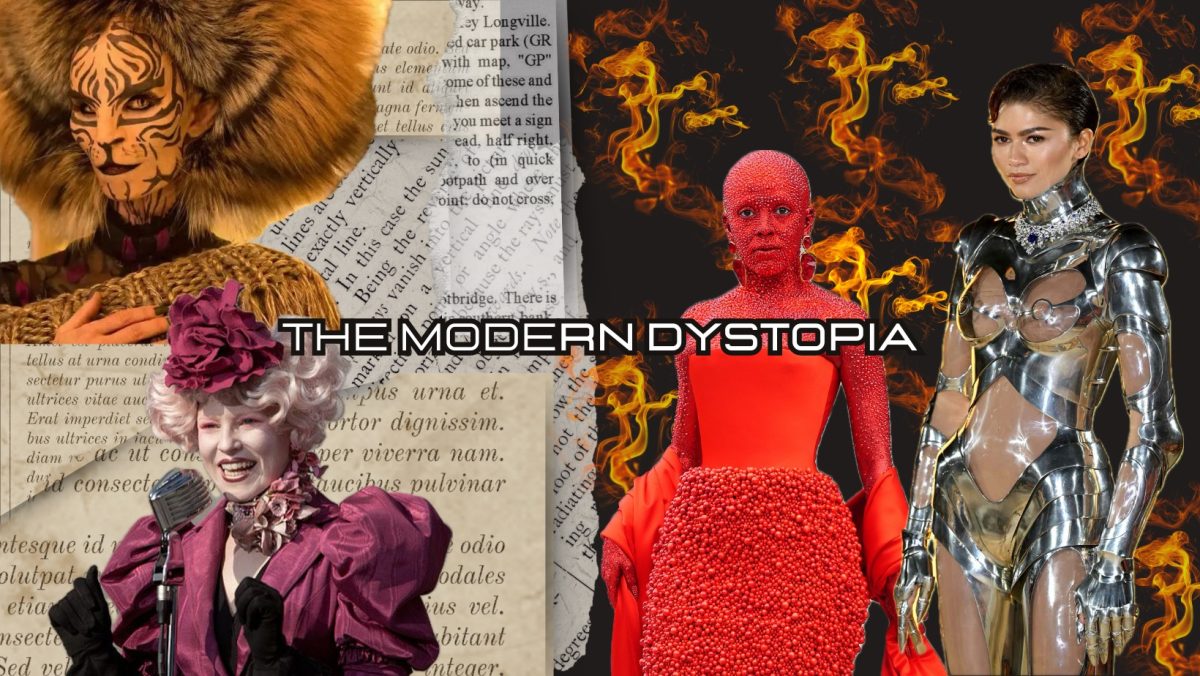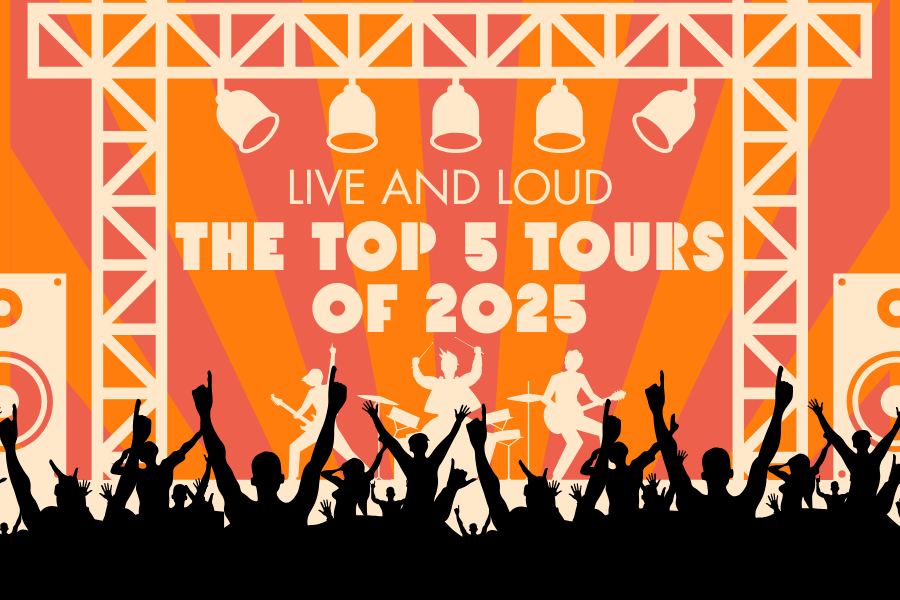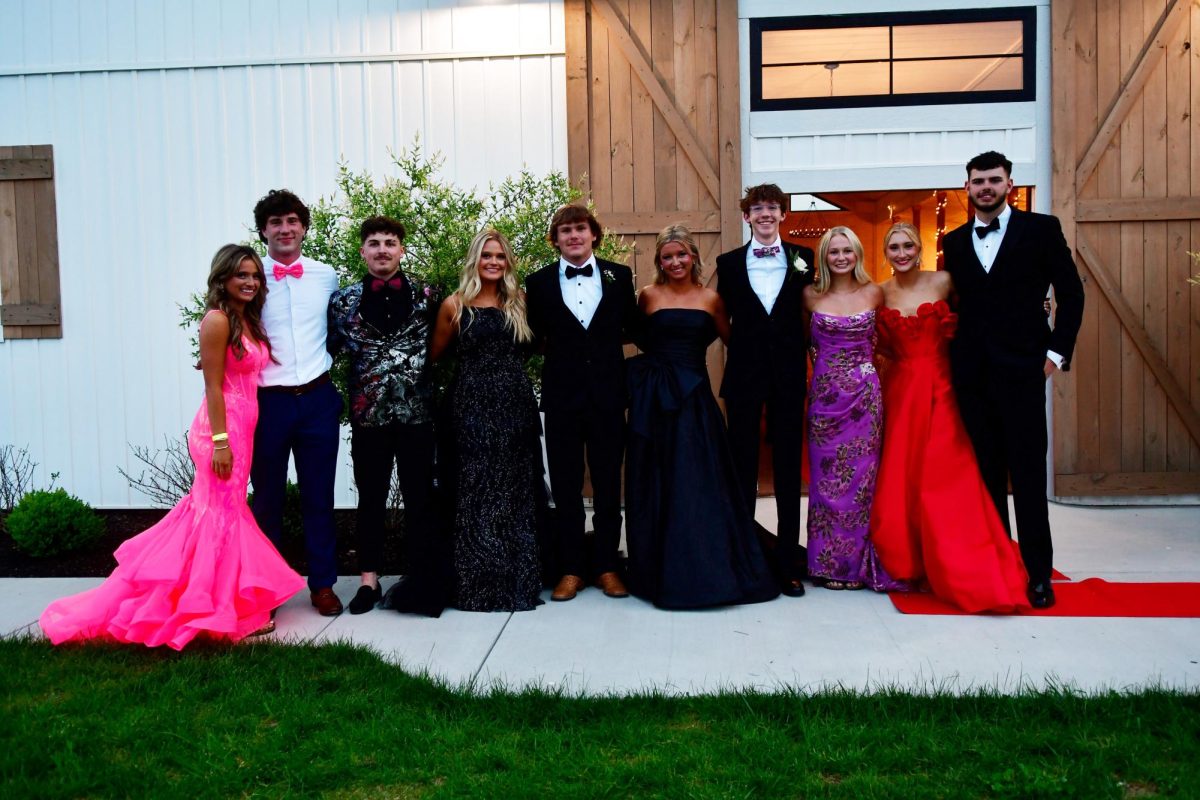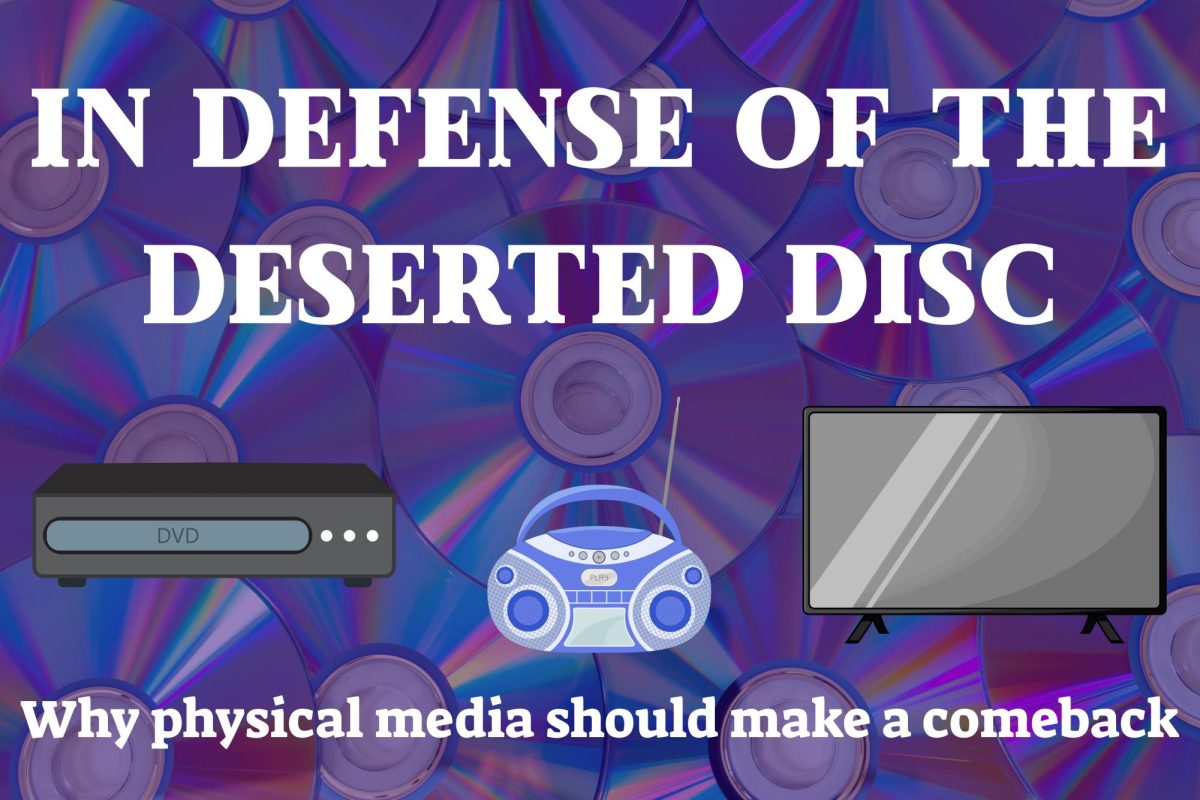The 2010s were an era of dystopia. Stories like The Hunger Games, The Maze Runner, and Divergent were the peak of media entertainment and everything was fine.
Now, the 2010s have passed us by but there is a dystopian era still about, one that isn’t solely found in fiction. Instead, this “make-believe” sense of dystopia has been translated into our current lives.
To any fan of The Hunger Games, The Capitol is the pivotal landmark of absurdity and maximalism, with cosmetic surgeries, outrageous couture, and extraneous personalities. With brands like Schiaparelli and Mugler changing the fashion game, celebrities are mimicking Capitol glamor.
Specifically, celebrity fashion moguls like Doja Cat, Kylie Jenner, and even Zendaya have abandoned the typical sense of wearable fashion and have shifted to a sense of art that exceeds the question of practicality.
From being covered head to toe in gemstones to wearing metal crafted suits that resemble characters from Star Wars, these celebrities are making the absurd characters from The Capitol real.
However, fashion is just the first bridge between the world of dystopia with the modern age. With Hollywood having a current fixation on a drug usually used to battle diabetes, Ozempic has been a tool celebrities use to lose weight.
With this drug, along with the more common practice of plastic surgery, celebrities and wealthy Americans have been able to almost entirely change their appearance to fit the societal norm, something straight out of a dystopian novel.
Even beyond the scope of appearance, actions by people in power have proven to become more like tyrants found in these novels with every passing day.
Specifically speaking about the banning of certain books, government officials have now mirrored gestures found in popular novels such as Fahrenheit 451 by Ray Bradbury.
Of course, Fahrenheit 451 was specifically about burning books and making them illegal to possess, but the growing obsession that is book banning resembles early stages of abolishing the contents of certain books.
Other than the act of banning books, the physical copies of text have almost become outlawed to make room for a growth of technology. Now, there are machines that can do everything for a person.
AI has become a tool readily used in the classroom, infiltrating platforms such as Canva, Snapchat, and even the Chat GPTs that can be easily accessed to do work for you. Life with the easily-accessible technology almost replaces the need for human workforce in many jobs.
Moreover, with the ability to track movements on the internet and even gaining personal information from Facebook users, tech geniuses have become the modern day “Big Brother.”
I love dystopian novels as much as the next person, but when the bridge becomes almost seamless between reality and fiction, that’s when it has gone too far.
Art, individuality, and creativity are things I personally admire.
But when the idea of power becomes more of a necessity than a craving, that’s when we start to see the idea of a dystopian society become the reality of 2024’s society.
While Panem may not be in our future, I believe the novels that inspired the media in the 2010s have truly captured the essence of our society’s future.









